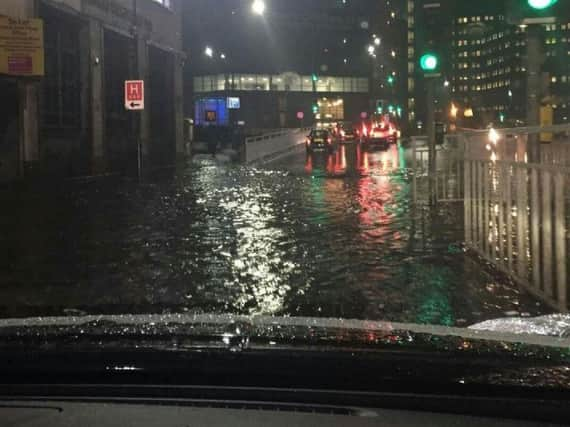Met Office issues advice on winter driving


With over 150 roads affected by flooding this morning, the Met Office has issued safety advice.
It is urging people to avoid starting journeys if heavy downpours are expected and, if possible, to choose main roads.
Advertisement
Hide AdAdvertisement
Hide AdA spokesman said: "On flooded roads, think before driving through deep water - don’t stop in standing water and drive through the highest section of the road slowly. If there is any doubt don’t enter it."Once you have managed to drive through check your brakes and dry them out as quickly as possible - a light touch of the brakes whilst still moving should do the trick."If you can, choose main roads, where you are less likely to be exposed to fallen branches and debris and flooding."Use dipped headlights if visibility is significantly reduced. Keep your eyes peeled on the road at all times as spray from other vehicles can suddenly reduce your visibility. Remember it affects others too, so anticipate their actions and be prepared.
"Roads will be more slippery than usual in wet weather - be sure to give yourself more time to react when approaching a hazard. Increase your following gap to at least four seconds from the moving traffic in front."
The Met Office also issued advice about driving in windy conditions over the winter.
The spokesman added: "Gusts of wind can unsettle vehicles - grip your steering wheel firmly with both hands. This is particularly important when planning to overtake."Keep an eye out for gaps between trees, buildings or bridges over a river or railway - these are some of the places you are more likely to be exposed to side winds. Ensure that you maintain enough room either side of your vehicle so you can account for it being blown sideways.
Advertisement
Hide AdAdvertisement
Hide Ad"Remember to give vulnerable road users including cyclists, motorcyclists and pedestrians more room than usual. They are more likely to be blown around by side winds - always keep a safe distance."
Advertisement
Hide AdAdvertisement
Hide Ad